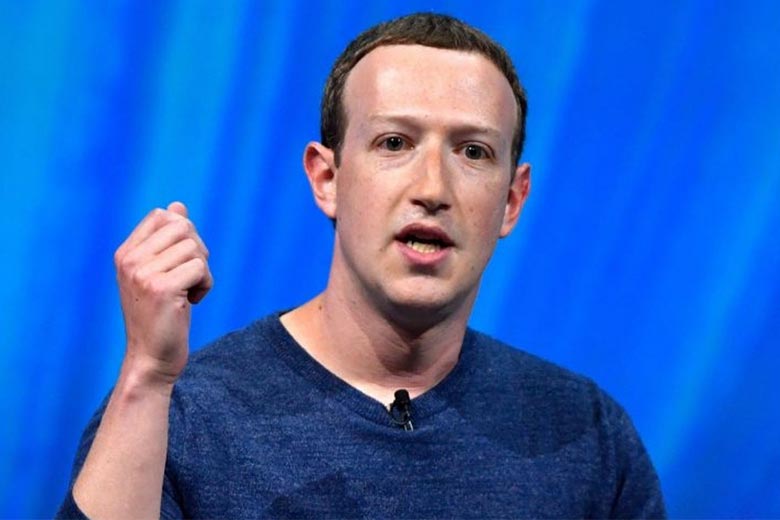
Facebook’s ban on news content. What does it mean for Australian advertisers?
This morning Facebook announced that in response to Government legislation, Facebook would restrict the posting of news links and all posts from news pages within Australia.

Why Did this happen?
- On July 2019 the ACCC published their findings in a 600 page report titled Digital Platforms Inquiry.
- The report contained 23 recommendations relating to digital platforms and their impact on privacy, business, advertisers and the media.
- Among them were 4 recommendations directly relating to the impact on “choice and quality of journalism”.
- Of those 4 recommendations, 1 recommendation was to create a voluntary bargaining code to address perceived imbalances of power between media organisations and the two largest digital platforms Facebook and Google.
- Under the direction of the Government the ACCC began negotiations with Facebook, Google and members of the Australian media to create a voluntary bargaining code.
- On April 2020 the ACCC reported back to the government that no progress had been made on the voluntary code and recommended that they instead work create a mandatory bargaining code to take its place.
- On July 2020 draft legislation was proposed to parliament for the mandatory code which would force Google and Facebook to pay media organisations that they link to as well as to share data with media services and provide notice on any algorithm changes that could impact the way news content is displayed.
- On February 18 Facebook took the step to restrict the posting of news links and all posts from news pages within Australia.
What does it mean for advertisers?
The question of what this all means for advertisers really depends on another question, what will happen to Facebook usage? Although we have already seen that exactly what Facebook classifies as a “news page” will have ramifications for many organisations as well.
It’s clear that Facebook are taking a very broad view on what constitutes news so expect sporting organisations, not-for-profits and special interest groups to be among the early casualties.
But returning for a moment to Facebook usage, the likely impact will almost certainly be one of the following scenarios:
- Users leave the platform and adopt other social media platforms such as Twitter, Reddit, Pinterest, Medium etc.
- Users stay on Facebook but their daily usage drops as they spread their time between Facebook and other platforms.
- The content void is filled by other sources and usage remains unchanged.
The first two outcomes would result in a similar impact on advertisers.
These impacts would include reduced reach and a reduction in total ad inventory, which could in turn drive up costs and potentially impact performance.
The actual effects of this reduced inventory would differ depending on the advertiser. For many the impact may be negligible.
Those with small budgets but a relatively broader target audience would be impacted the least.
Those targeting particularly small, niche audiences or those with particularly large ad budgets would likely be impacted the most.
Either way the litmus test would always be cost per desired action ie. cost per lead, cost per sale etc. If these remain within an acceptable threshold, then there is no real need for concern.
If volume of conversions drop then some advertisers may need to augment their facebook/Instagram advertising with other channels.
The 3rd outcome is potentially the more interesting of the three although given what we have seen from Facebook so far with regard to their classification of “news content” one which would benefit some organisations more than others.
In this scenario advertising reach and audience sizes would likely be unaffected, but greater opportunity could emerge for organic content.
This centres around the question of what content will fill the void and where will it come from?
One potential answer could be that organic page content becomes more visible. If this increased visibility also leads to greater engagement, then organisations may see improved organic reach from their page content.
This may mean that there is an opportunity for businesses and organisations themselves to fill some of the content void whilst maintaining current advertising reach and performance. Win, win for some.
What actions should advertisers take?
Actions for organisations who invest in organic content
In the short term, there’s unlikely to be much of an impact on advertisers. The biggest impact so far has been to organisations who post organic content to the platform.
With organic reach as low as it now is on Facebook these days, exactly how significant the actual impact will be is debatable. However there are clearly still a large number of organisations who include organic Facebook posting as part of their marketing mix and for these organisations getting incorrectly classified as a media organisation will be something of a concern (to put it mildly).
We have already seen content removed from the Bureau of Meteorology (BOM) and charity organisations including Oxfam Australia and the number of reported businesses who have been impacted by the change will no doubt increase over the coming days.
The content itself is still visible through Facebook Business Manager to page admins (so it hasn’t been deleted), but we are seeing large quantities of posts which are no longer publicly visible.
So the first step will be to review your pages to see if they have been affected.
At this stage it’s not clear what can be done to restore content or to review the classification of facebook pages as “news pages”. But understanding if you have been impacted could allow for steps to be taken to contest the classification once there is an established process to do so.
Understanding if you have had content removed from your Facebook page would also allow for the promotion of removed content on alternative platforms depending on it’s importance within your mix.
At the time of writing the BOM content appears to have been restored after media coverage (somewhat ironically) of the story. So clearly there is some fine tuning that is possible and necessary from Facebook’s end and further tweaks could be expected.
Actions for Facebook advertisers
For advertisers there’s no need for panic and no great need for sweeping changes. However it may be possible that certain ads deemed to include “news content” could be disapproved, although we haven’t seen any thing like this happen across our client accounts just yet.
We would recommend the following actions for advertisers;
1. Check for ad disapprovals
Review your account regularly for ad disapprovals. Knowing the way Facebook typically reviews ad copy, it’s unlikely that all ads will become disapproved instantly. So it’s possible ads that are approved today may get suspended tomorrow.
So setting a regular check to ensure that your ads are running will be an important first step.
2. Watch your metrics
Advertisers should pay close attention to their important metrics. In particular cost per desired action (whatever that is for your business) should be monitored closely.
To a lesser extent metrics such as reach, cost per click (CPC) or cost per thousand impressions (CPM) should also be monitored.
3. Monitor your pacing
Keeping an eye on total spend is also a good idea as some advertisers may see their campaigns begin to under pace.
If campaign spends drop, then expanding audience targeting or adding new campaigns may be required.
Updating creative to squeeze more engagement from reduced audiences may be another option.
4. Augment your advertising with new channels
Last year Facebook referred an estimated 5.1 billion free referrals to news organisations within Australia. One of the big questions will be how much of that traffic to media sources will be lost and how many users will instead go direct to the source.
If direct visits to news outlets increases, then native advertising platforms such as Taboola or Outbrain might become much more desirable.
Services such as Apple News and Google News (Not to mention Google’s Showcase platform when it is launched) will likely also see an uplift in usage.
Both platforms allow advertising thorough the Apple and Google ads platforms respectively and would also be obvious channels to trial.
Today there are a plethora of new digital media options including Spotify, Twitter, Pinterest, Quora, Catch Up TV and even outdoor advertising has gone digital.
By moving digital, these services now offer many of the cost efficiencies that appeal to small and medium advertisers on Facebook. So taking a test and learn approach to some or all of these channels could be an effective strategy and one which is unlikely to break the bank.
So What Now?
There’s a lot still to happen in this space. As of the writing of this article talks between Mark Zuckerberg and the Australian Government were underway and the Government has held a press conference to discuss the matter. So no doubt this will not be the final word.
Hopefully the ideas outlined within this article will help start discussions around your organisation. In the meantime, stay calm, and remember that disruption almost always creates new opportunity. 🙂
References:
Draft News Media Bargaining Code
Digital Platforms Inquiry Report


